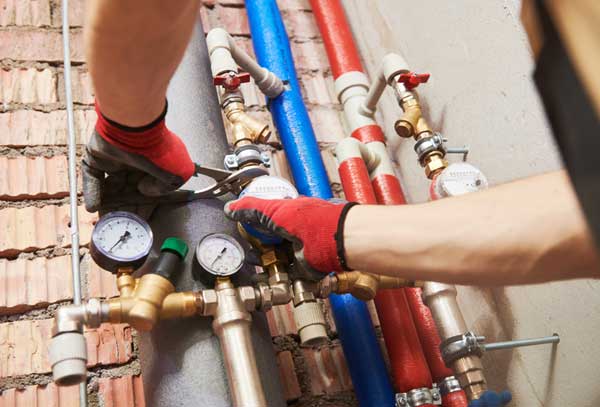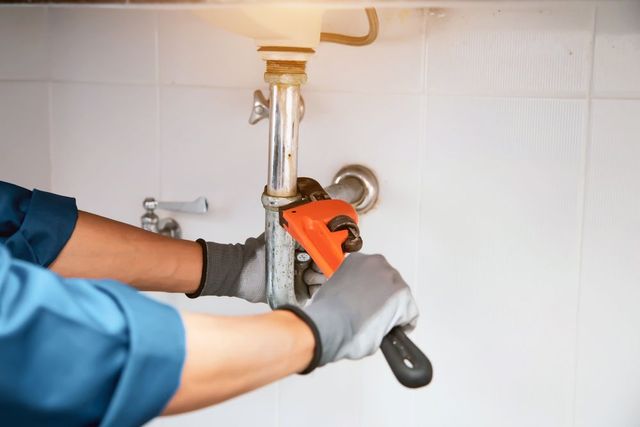How do you actually feel in regards to Essential DIY Bathroom Plumbing Tips Every Homeowner?

For new home owners, understanding and preserving shower room plumbing can conserve both money and time by preventing pricey issues down the line. Below are some essential shower room plumbing ideas to assist you maintain every little thing running smoothly.
Familiarize Yourself with the Key Shut-Off Valve
Recognizing where the major water shut-off valve lies in your home is vital. This enables you to promptly shut off the water in case of significant leakages or throughout pipes emergency situations, stopping comprehensive water damage.
Consistently Inspect for Leaks
Small leakages can cause big troubles. Frequently check under sinks, around commodes, and near plumbing fixtures for any type of indications of leaks. Seek moisture, little drips, or corrosion. Catching and repairing leakages early can stop extra significant damages and save water.
Don't Ignore Slow Drains Pipes
If your sink or bath tub is draining pipes gradually, it's frequently an indication of a clog creating. Addressing this very early can avoid a complete obstruction. Make use of a plunger or a plumber's snake to remove debris. Prevent using chemical drain cleansers as they can damage your pipelines in time.
Know What Not to Flush
Toilets are not waste disposal unit. Avoid purging anything aside from toilet tissue and human waste. Items like wipes, womanly hygiene products, and cotton bud should be dealt with in the trash to prevent clogs and sewer backups.
Set Up Strainers in Drains
Place filters in your sink and bath tub drains pipes to catch hair and various other debris before they enter your pipes system. Cleaning the filters regularly will help protect against accumulation and maintain water moving easily.
Keep Your Water Heater
Guarantee your water heater is readied to an appropriate temperature (generally about 120 degrees Fahrenheit) to stop scalding and minimize power use. Flush the storage tank each year to eliminate debris accumulation, which can reduce the performance and life-span of your heating unit.
Upgrade Your Components
If your home has older fixtures, consider updating to more effective versions. Modern toilets, showerheads, and faucets are made to utilize much less water while giving good stress, which can dramatically lower your water bill and ecological footprint.
Beware with Do It Yourself Pipes Repairs
While it's alluring to deal with all home repair work by yourself, be cautious with pipes. Some problems might call for expert competence, particularly if they involve main water lines or sewage system fixings. Working with an expert can in some cases be much more cost-effective than DIY, specifically if it protects against more damage.
Plan For Winter
Safeguard your pipes from cold throughout winter by insulating pipes in unheated locations like cellars, attics, and garages. During severe cool, allow cold water drip from faucets served by revealed pipes to help avoid cold.
Schedule Normal Upkeep
Think about scheduling yearly inspections with an accredited plumbing. They can spot concerns that you could miss out on, such as surprise leakages or wear and tear on pipelines and fixtures. Regular maintenance aids extend the life of your plumbing system and can avoid emergency situations.
Final thought
Recognizing and keeping your home's washroom pipes can stop several usual issues. By following these crucial tips, you can guarantee your restroom stays functional and efficient, conserving you money and time over time.
Essential Plumbing Tips for Homeowners: Keep Your Pipes Flowing Smoothly
As a homeowner, understanding the basics of your plumbing system can save you time, money, and a lot of headaches. Plumbing issues can range from minor annoyances like dripping faucets to major problems like burst pipes that cause significant damage. This guide provides essential tips to help you maintain your plumbing system and tackle common issues.
Understanding Your Plumbing System
Supply System: Brings fresh water into your home from a municipal source or a well. Drain-Waste-Vent System: Removes wastewater and vents sewer gases outside. Fixtures and Appliances: Includes sinks, toilets, showers, dishwashers, and washing machines. Basic Maintenance Tips
Regular Inspections: Periodically check for leaks, corrosion, and other signs of wear and tear. Look under sinks, around toilets, and near water heaters. Know Your Main Shut-Off Valve: In case of a major leak, you’ll need to shut off the water quickly. Ensure everyone in your household knows where the main shut-off valve is located. Prevent Frozen Pipes: In cold climates, insulate exposed pipes and let faucets drip during extreme cold to prevent freezing. Use Strainers: Install strainers in sinks and tubs to catch hair, food particles, and other debris that can cause clogs. Common Plumbing Issues and Solutions
Clogged Drains:
Prevention: Avoid pouring grease down the drain and use drain screens to catch debris. DIY Fix: Use a plunger or a plumbing snake to clear minor clogs. For stubborn clogs, a mixture of baking soda and vinegar can sometimes help. Leaky Faucets:
Prevention: Replace washers and seals regularly. DIY Fix: Turn off the water supply, disassemble the faucet, and replace worn parts.

Call Today